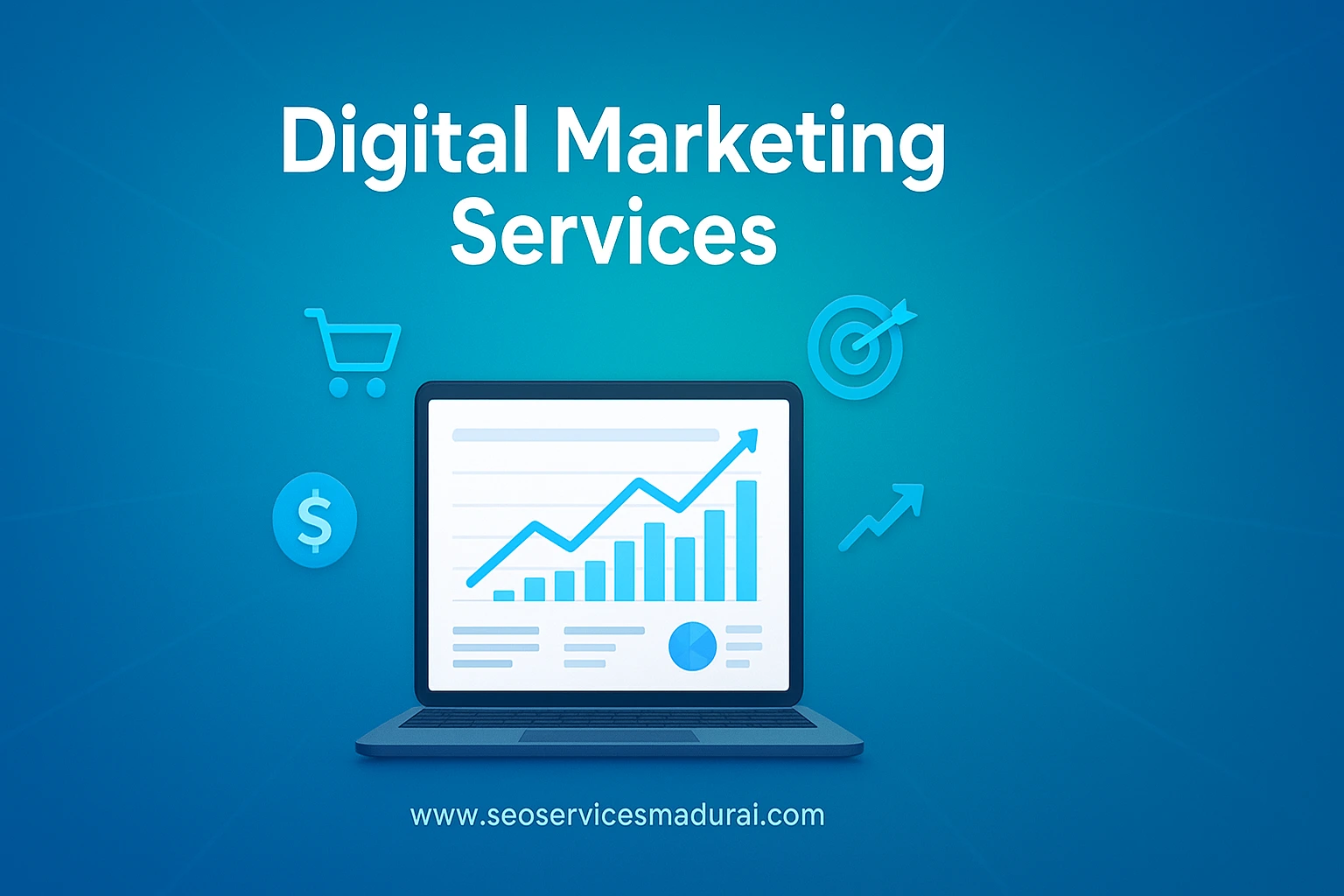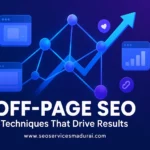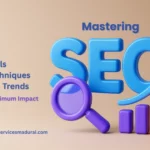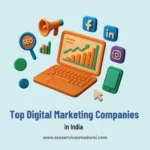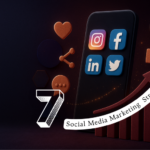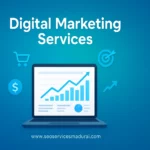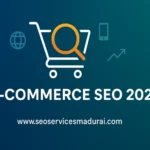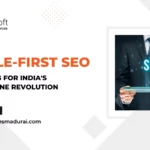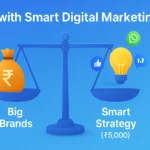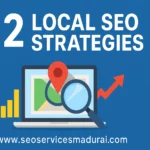In today’s competitive digital landscape, businesses are constantly searching for effective ways to boost their online sales. With e-commerce revenue projected to reach $8.1 trillion by 2026, the question isn’t whether you need digital marketing – it’s which services will deliver the highest return on investment.
After analyzing thousands of successful campaigns and working with businesses across various industries, I’ve identified the most impactful Digital Marketing Services for Online Sales. Let’s dive into the strategies that can transform your online revenue.
1. Search Engine Optimization (SEO): The Foundation of Long-Term Growth
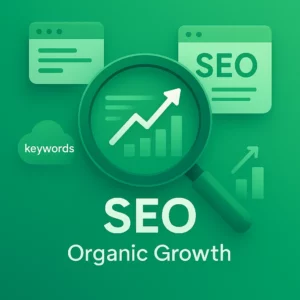
SEO remains the cornerstone of sustainable online growth. Unlike paid advertising, organic search traffic continues flowing even when you’re not actively spending on campaigns.
Why SEO Drives Sales
When potential customers search for products or services like yours, appearing on the first page of Google can increase your click-through rates by up to 300%. More importantly, organic traffic converts 14.6% better than outbound marketing leads.
Key SEO Strategies That Boost Sales
Technical SEO Optimization:
Ensuring your website loads quickly (under 3 seconds) and provides smooth user experience across all devices directly impacts conversion rates.
Content-Driven SEO:
Creating valuable, problem-solving content that matches search intent helps you capture high-quality traffic at different stages of the buyer’s journey.
Local SEO:
For businesses serving specific geographic areas, local SEO can increase foot traffic and online sales by up to 200%.
E-commerce SEO:
Optimizing product pages, category structures, and implementing schema markup can significantly improve visibility for commercial search queries.
A well-executed SEO strategy typically shows initial results within 3-6 months, with compounding returns over time. The beauty of SEO lies in its ability to attract customers who are actively searching for solutions you provide.
2. Pay-Per-Click (PPC) Advertising: Immediate Results and Scalable Growth
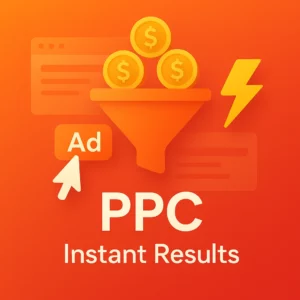
While SEO builds long-term authority, PPC advertising delivers immediate visibility and traffic. Google Ads alone reaches over 90% of global internet users, making it an essential tool for rapid growth.
Google Ads: Capturing High-Intent Traffic
Google Ads excels at capturing customers at the moment they’re ready to buy. Search campaigns targeting commercial keywords often achieve conversion rates between 3-5%, significantly higher than display advertising.
Shopping Campaigns: For e-commerce businesses, Google Shopping ads can increase click-through rates by 30% compared to text ads, as they showcase product images and prices directly in search results.
Remarketing Campaigns: Targeting previous website visitors with tailored ads can boost conversion rates by up to 150%, as you’re reaching people already familiar with your brand.
Social Media Advertising: Precision Targeting
Facebook and Instagram ads offer unparalleled targeting capabilities, allowing you to reach specific demographics, interests, and behaviors.
Facebook Ads:
With detailed targeting options and various ad formats, Facebook ads can achieve an average return on ad spend (ROAS) of 4:1 across industries.
Instagram Shopping:
Native shopping features make Instagram particularly effective for product-based businesses, with 44% of users using the platform to shop weekly.
LinkedIn Ads:
For B2B companies, LinkedIn’s professional targeting can generate leads with 2-3x higher conversion rates compared to other social platforms.
3. Content Marketing: Building Trust and Authority
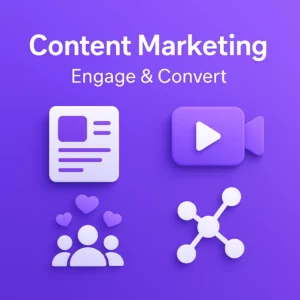
Content marketing costs 62% less than traditional marketing while generating 3x more leads. However, success requires strategic planning and consistent execution.
Blog Content Strategy
Publishing high-quality blog posts that address customer pain points serves multiple purposes:
- Improves SEO rankings through fresh, relevant content
- Establishes thought leadership in your industry
- Nurtures prospects through the sales funnel
- Provides shareable content for social media
Video Marketing
Video content generates 1200% more shares than text and image content combined. Platforms like YouTube, TikTok, and Instagram Reels offer massive reach potential.
Product Demonstrations:
Video demonstrations can increase purchase likelihood by 144%, as customers can see products in action before buying.
Customer Testimonials:
Video testimonials are 39% more effective than text testimonials at influencing purchase decisions.
Email Marketing Integration
Content marketing works best when integrated with email nurturing sequences. Segmented email campaigns based on content consumption can achieve open rates 14.3x higher than non-segmented campaigns.
4. Conversion Rate Optimization (CRO): Maximizing Your Existing Traffic
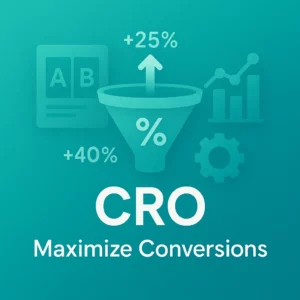
CRO focuses on improving the percentage of website visitors who complete desired actions. Even small improvements can dramatically impact revenue without increasing marketing spend.
Website User Experience Optimization
Page Load Speed:
A one-second delay in page load time can reduce conversions by 7%. Optimizing images, reducing server response time, and implementing caching can significantly improve performance.
Mobile Optimization:
With 54% of global web traffic coming from mobile devices, mobile-friendly design isn’t optional—it’s essential for sales growth.
Navigation and Site Structure:
Clear navigation reduces bounce rates and helps customers find products or information quickly.
A/B Testing Strategy
Systematic testing of headlines, call-to-action buttons, product descriptions, and checkout processes can reveal optimization opportunities. Companies using A/B testing tools report 15-25% improvement in conversion rates on average.
Trust Signals and Social Proof
Implementing customer reviews, security badges, money-back guarantees, and professional certifications can increase conversion rates by 34%.
5. Social Media Marketing: Building Community and Driving Engagement
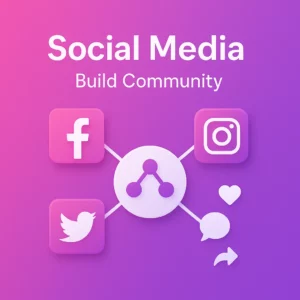
Social media marketing extends beyond paid advertising to include organic community building, customer service, and brand awareness campaigns.
Platform-Specific Strategies
Instagram:
Visual storytelling and influencer partnerships work particularly well for lifestyle and consumer goods brands.
Facebook:
Community building through groups and pages helps create loyal customer bases that generate repeat sales.
Twitter/X:
Real-time customer service and thought leadership content can enhance brand reputation and customer loyalty.
Influencer Marketing
Micro-influencers (1K-100K followers) often achieve higher engagement rates than mega-influencers, with 60% of brands reporting better ROI from micro-influencer campaigns.
6. Email Marketing: The Highest ROI Channel
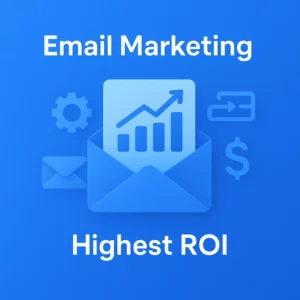
Email marketing consistently delivers the highest ROI among digital marketing channels, averaging $42 for every $1 spent.
Automated Email Sequences
Welcome Series:
New subscriber sequences can generate 30x more revenue per email than single promotional emails.
Abandoned Cart Recovery:
These automated emails can recover 15-25% of abandoned purchases, significantly boosting revenue.
Post-Purchase Follow-Up:
Nurturing customers after purchase increases lifetime value and encourages repeat purchases.
Personalization and Segmentation
Personalized emails deliver 6x higher transaction rates than generic broadcasts. Advanced segmentation based on purchase history, browsing behavior, and demographic data enables highly targeted messaging.
7. Marketing Automation: Scaling Your Efforts
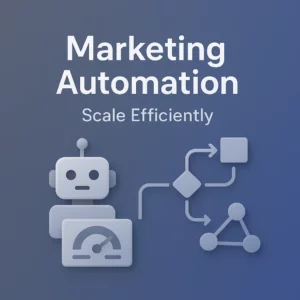
Marketing automation platforms help businesses nurture leads, score prospects, and deliver personalized experiences at scale.
Lead Scoring and Nurturing
Automated lead scoring systems help sales teams focus on the most promising prospects, while nurturing sequences keep less qualified leads engaged until they’re ready to buy.
Cross-Channel Integration
Modern marketing automation platforms integrate email, social media, SMS, and website personalization to create cohesive customer journeys across all touchpoints.
8. Analytics and Data-Driven Decision Making
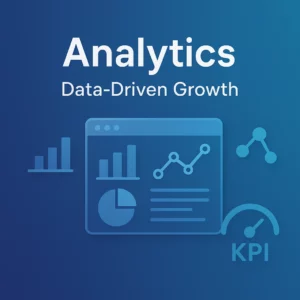
Success in digital marketing requires continuous monitoring, analysis, and optimization based on data insights.
Essential Metrics to Track
Customer Acquisition Cost (CAC):
Understanding how much you spend to acquire each customer helps optimize marketing budgets.
Customer Lifetime Value (CLV):
Knowing the long-term value of customers guides investment decisions in retention and acquisition.
Attribution Modeling:
Understanding which channels contribute to conversions helps allocate budget to the most effective strategies.
Advanced Analytics Implementation
Google Analytics 4, combined with proper conversion tracking and goal setup, provides insights needed for data-driven decision making. Heat mapping tools like Hotjar reveal user behavior patterns that inform optimization strategies.
Choosing the Right Mix of Services
The most effective digital marketing strategies combine multiple services that work synergistically. Here’s how to approach selection:
Budget Considerations
Startup/Small Budget:
Focus on SEO and organic social media to build foundation, add PPC for immediate results when budget allows.
Medium Budget:
Implement comprehensive SEO, targeted PPC campaigns, content marketing, and basic automation.
Large Budget:
Full-funnel approach including all services, with advanced automation, extensive testing, and multiple platform presence.
Industry-Specific Considerations
E-commerce:
Prioritize SEO, Google Shopping campaigns, email automation, and conversion optimization.
B2B Services:
Focus on content marketing, LinkedIn advertising, SEO, and marketing automation.
Local Businesses:
Emphasize local SEO, Google Ads, Facebook advertising, and reputation management.
SaaS Companies:
Content marketing, SEO, PPC, email nurturing, and conversion optimization drive best results.
Measuring Success and ROI
Effective digital marketing requires clear success metrics and regular performance evaluation.
Key Performance Indicators (KPIs)
Revenue Attribution: Track which channels and campaigns directly contribute to sales revenue.
Cost Per Acquisition: Monitor how efficiently each channel acquires new customers.
Return on Ad Spend: Measure the revenue generated for every dollar spent on advertising.
Organic Traffic Growth: Track improvement in organic search visibility and traffic over time.
Reporting and Optimization
Monthly performance reviews should examine:
- Channel performance and budget allocation
- Conversion funnel optimization opportunities
- Competitive landscape changes
- New platform or strategy opportunities
Working with Digital Marketing Professionals
While some businesses manage digital marketing internally, partnering with experienced professionals often accelerates results and provides access to specialized expertise.
What to Look for in a Digital Marketing Partner
Proven Track Record: Look for agencies or consultants with demonstrated success in your industry or similar business models.
Comprehensive Approach: The best results come from integrated strategies rather than isolated tactics.
Transparent Reporting: Regular, detailed reporting helps you understand what’s working and where improvements are needed.
Strategic Thinking: Beyond execution, look for partners who contribute strategic insights and optimization recommendations.
Local Expertise: For businesses targeting specific geographic markets, local knowledge and connections can provide significant advantages.
Future Trends in Digital Marketing
Staying ahead of emerging trends helps maintain competitive advantage:
Artificial Intelligence and Machine Learning
AI-powered tools are revolutionizing personalization, customer service, and campaign optimization. Businesses implementing AI-driven marketing see 15% increase in sales productivity on average.
Voice Search Optimization
With smart speaker adoption growing rapidly, optimizing for voice search queries becomes increasingly important for maintaining search visibility.
Privacy-First Marketing
Changes in data privacy regulations and cookie policies require new approaches to customer tracking and personalization.
Interactive Content
Polls, quizzes, augmented reality experiences, and interactive videos drive higher engagement rates than static content.
Taking Action: Your Next Steps
Success in digital marketing requires strategic planning, consistent execution, and continuous optimization. Here’s your roadmap:
- Audit Current Performance: Analyze existing marketing efforts to identify strengths, weaknesses, and opportunities.
- Set Clear Goals: Define specific, measurable objectives for online sales growth.
- Prioritize Services: Based on your budget, timeline, and business model, select the most impactful services to implement first.
- Create an Integration Plan: Ensure different marketing channels work together cohesively rather than in isolation.
- Establish Measurement Systems: Implement proper tracking and analytics to monitor progress and optimize performance.
- Plan for Scalability: Build systems and processes that can grow with your business.
The digital marketing landscape offers unprecedented opportunities for businesses willing to invest in proven strategies and execute them consistently. Companies that embrace comprehensive digital marketing approaches see average revenue growth of 23% year-over-year, compared to just 16% for those using traditional marketing methods alone.
Whether you’re just starting your digital marketing journey or looking to optimize existing efforts, focusing on these top services will position your business for sustainable online sales growth. The key lies not just in choosing the right tactics, but in executing them strategically and measuring results continuously.
Remember, digital marketing is a marathon, not a sprint. The businesses that achieve lasting success are those that commit to long-term strategy execution while remaining agile enough to adapt to changing market conditions and customer behaviors.

